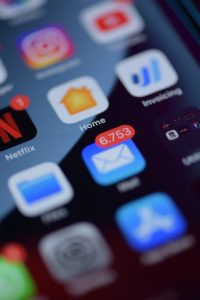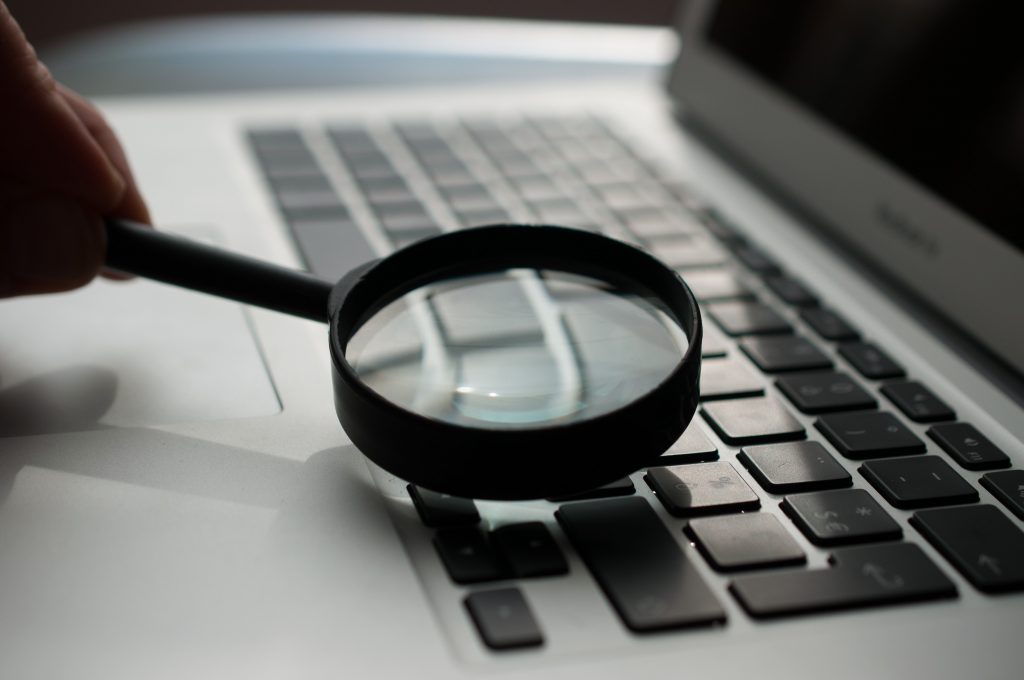
In a second post related to World Digital Preservation Day, 3 November 2022, I thought I would share the tips that our University Records Manager, David Jenkins and I (Vicky Holmes, University Archivist) gave at some informal sessions run on 3 November about managing your own digital archive.
We are all dealing with a deluge of digital information, from texts, WhatsApp messages, emails and social media feeds, meaning that rather than stacks of letters, documents and physical photographs, we have bits and bytes piling up. There is often an amount of free digital storage with a provider of a particular service, but if you find you are pushing at the boundaries of this, spending too long looking for that one email or photo, or are worried about how to preserve important information in the longer term, then read on for some helpful tips.
Email management
To avoid getting overwhelmed by your personal emails, here are some simple things that you can do:
- Unsubscribe from everything that you can.
- In your inbox, group by sender and delete any old, irrelevant, expired, or time-sensitive messages all in one go. You may have to log in to browser versions to do this.
- Create folders or use labels / tags and meaningful subject lines to help you organise and search your messages (this will be easier if you are only keeping ones you need!).
- Download and save attachments and important emails outside the email client.
- ‘Archiving’ features may automatically carry out tasks or change your messages, so just make sure you know what they will do before you sign up. Also, are you using this feature just to put off deleting messages?
Photo or video tips
It is now so much easier to take a photograph than it was for those of us who remember 24 or 26 exposure negative rolls, and you can see what you have taken immediately, rather than wait with bated breath to see how the film came out (and in a bad batch, feel regret at the number of ‘bad exposure’ stickers the processor had added!). Here are some tips for managing digital photos or videos:
- Exercise quality control – don’t just keep everything.
- Is there a better way to keep information required from screenshots etc?
- Name your photographs with who, what , when etc, soon after you have taken them so the information is all fresh in your mind. ‘Vicky outside the National Gallery, June 2010’ is much more meaningful and easier to search for than ‘img 1006’.
- Use commercial services to print out special photos or create memory books (as a kind of hard-copy back up).

Managing, organising and finding things
- Dispose of unwanted or expired information regularly.
- Gather together information centrally so you know where it all is and don’t have to deal with lots of old phones, laptops etc.
- Be consistent with whatever organisation and naming system that you use.
- Don’t rely on social media sites as your ‘archive’.
- Back up anything that you want to keep for the long term, to increase the chances of still being able to access it.
- If you use physical media (CDs, data sticks, hard-drives) to back up, make sure you are migrating and renewing them regularly, and keep them in stable conditions (not too hot, cold, wet or light).
- If you use the cloud as backup, use strong passwords and be aware of any size limits and exit arrangements.
- You may want to think about using a combination of physical media and cloud storage, to spread the risk.

Managing your files over time
- ‘Little and often’ is probably more manageable than trying to work through years’ worth of data at a time. Can you set aside half an hour every few weeks, or a longer period once a month to do some of the things suggested above?
- We have all seen or heard about stories of identity theft and personal images being shared. Be aware of where sensitive data or photographs are held – do you really need to keep them?
- Are your passwords for cloud storage memorable and strong? You don’t want to get locked out, or risk being hacked. Always use multi-factor authentication where you can.
- Is there a trusted person you can share passwords etc with in case you are unable to access them?


 Subscribe to vholmes's posts
Subscribe to vholmes's posts